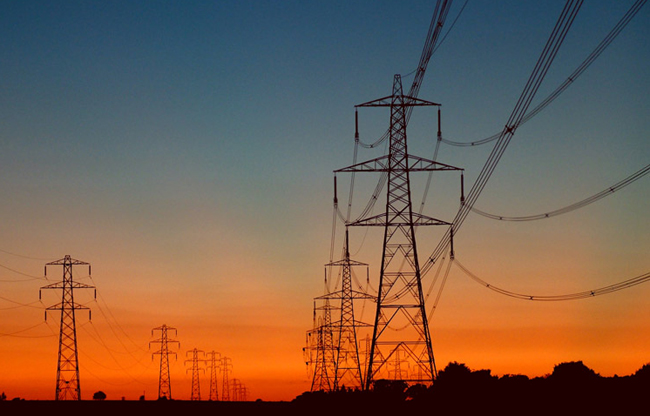Business Maverick, Politics
SA electricity distribution industry: government goes back to the drawing board

Sources have revealed cabinet has decided to withdraw a bill published on 17 June 2009 to amend the Constitution around existing rights and duties of municipalities to distribute electricity, despite long delays and uncertainties that have already inflicted a heavy toll on the economy. By CHRIS YELLAND.
The cabinet’s decision is said to be the precursor to disbanding EDI Holdings by 1 April. EDI is a state-owned company established by government on 1 July 2003 to project-manage the restructuring of the electricity distribution industry (EDI).
The Constitution 17th Amendment Bill had been intended to remove a stumbling block preventing the restructuring and consolidation of the EDI from some 180 municipal and six Eskom electricity distributors into an end-state of six “wall-to-wall” regional electricity distributors (REDs) serving the whole of South Africa.
It is expected that the department of energy will be reviewing the whole policy of EDI restructuring to determine if it is still valid and necessary. But in any case, the decision to disband EDI Holdings would seem to indicate a significant shift in both the policy and implementation of restructuring of the industry.
The EDI-restructuring process has been deadlocked almost from its inception in the early 1990s, and certainly since the establishment of EDI Holdings in July 2003.
After 13 years of talking about the thorny issues by government and the various stakeholders, former president Thabo Mbeki set a deadline in his state-of-the-nation address in 2004 for the establishment of the first RED by 1 July 2005, with the City of Cape Town as its commercial and industrial hub. It was intended that in time RED 1 would be expanded to encompass the whole Western Cape region.
However, in December 2006 the project suffered a major setback as the RED 1 initiative collapsed under acrimonious circumstances. The fundamental problem was that the necessary legislative framework for the restructuring of the EDI and the establishment of REDs, including the required constitutional amendment, had not been put in place and there was lack of consensus between the City of Cape Town and Eskom on critical issues.
Following this debacle, in addition to the need for the enabling legislation and an asset-transfer framework, a number of conflicting provisions in current legislation were identified, and a list of 23 key issues needing to be addressed by the stakeholders was drawn up by EDI Holdings.
It also became increasingly clear that local government was unlikely to voluntarily relinquish its Constitutionally enshrined rights to electricity distribution because many large municipalities, including Johannesburg, Cape Town, Durban, Ekurhuleni and others, derived significant revenue from this – revenue used to cross-subsidise other loss-making service-delivery activities.
The revenue surpluses from the distribution of electricity by municipalities were also perceived to be a source of power and influence by local government politicians, and they were clearly reluctant to lose this strategic municipal activity.
Thus, despite outward assurances of commitment to EDI restructuring by the SA Local Government Association, municipalities, the Association of Municipal Electricity Undertakings, Eskom, organised labour and various customer associations, this commitment was invariably conditional, and behind the scenes there was serious resistance to the restructuring.
The long list of ministers of minerals and energy since 1994 – from Pik Botha and Penuell Maduna, through to Phumzile Mlambo-Ngcuka, Buyelwa Sonjica and now Dipuo Peters – have also not helped in providing the strong political support and executive sponsorship necessary for continuity and follow-through of this fragmented R30 billion-a-year industry.
It also seems the former department of minerals and energy and the current department were unable to get a clear political consensus on the problematic issues, both from members of the tripartite alliance, as well as between national and local government.
Progress was painfully slow, and by 2010 there was still no clear sign of movement towards establishing the first RED. With the voluntary restructuring of the EDI deadlocked over the Constitutional rights of local government to reticulate electricity, the 17th Amendment Bill was seen as an effort to enable central government to impose its way over the reluctant municipalities.
On 3 March 2009, then minister Buyelwa Sonjica indicated that inefficiencies in the current EDI structure and the delays in restructuring were costing the country between R2.9 billion and R8 billion a year, and that the distribution maintenance and refurbishment backlog amounted to some R27 billion. In addition to the direct costs, the indirect costs to the productive economy are enormous.
Municipalities were clearly reluctant to invest the necessary capital and human resources in their electricity-distribution activities, while central government seemed intent on removing this activity from their direct control and consolidating municipal distributors into large wall-to-wall REDs, structured as public entities as opposed to municipal ones.
With the pending demise of EDI Holdings, it remains to be seen who will take over the burden of dealing with the human resource capacity inadequacies in the industry, the municipal backlog in maintenance and refurbishment, and the funding model to achieve this. These issues remain real challenges whatever the structure and end-state of the EDI. It is expected these responsibilities will revert to the department of energy, and that various relevant EDI Holdings staff will be absorbed into the department.
The minister is expected to hold a summit of stakeholders and customers to discuss the matter and chart a way forward. In the meantime, both the department of energy and the National Energy Regulator of South Africa have publicly stated on several occasions that the EDI and the backlog in distribution infrastructure, maintenance and refurbishment is a ticking time-bomb. DM
Chris Yelland is managing director of EE Publishers.
© Copyright 2010 – EE Publishers (Pty) Ltd. All rights reserved.



















 Become an Insider
Become an Insider